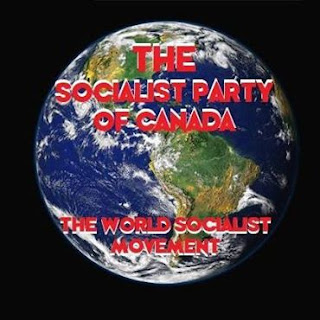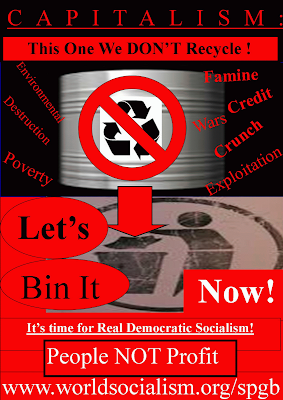Under a dictatorship, the traditional forms of working-class political and economic organisation are denied the right of legal existence. Freedom of speech, assembly, and the Press is severely curtailed and made to conform to the needs of a single political party that has for the time being secured a monopoly in the administration of the State machine. Under political democracy the workers are allowed to form their own political and industrial organisations and, within limits, freedom of speech, assembly and of the press is permitted, also the possibility of the electorate choosing between contending political parties.
Dictatorship in various forms exists at the present time, basically because of the political immaturity of most of the working class all over the world. Instead of being united by worldwide class consciousness, they are everywhere divided: divided between the nations by the poison of nationalism; divided inside the nations by religious, racial and other superstitions; divided also by the failure of many to appreciate the importance of democracy. Nationalism plays a powerful role in thwarting the growth of class consciousness; by inducing workers in the newly created countries of Africa to accept oppression for the supposed benefits they will later receive when industrial development has been speeded up; by the readiness of the workers in countries holding colonies to condone what is in effect a dictatorship imposed on the colonial peoples.
Dictatorship does not exist in a vacuum: like every other social phenomenon, it is related to and has its origin in, a social background. That background is capitalism which inevitably gives rise to working-class problems, consequent frustration, prejudices and bitterness which can be exploited by the opponents of democracy. With equal inevitability, it also gives rise to problems of a specifically capitalist nature: such as maintaining the profitability of production; securing new and retaining old markets; the necessity of forging 'national unity' when faced with war with rival capitalist groups, and so on. It is precisely in an attempt to solve these problems that the ruling class in certain circumstances has recourse to dictatorship. As long as the workers support capitalism and capitalist policies they will be tempted ultimately to give their support to the policy best calculated to meet the political and economic needs of capitalism, though that policy may be one of dictatorship.
We are said to have democracy in that we have free elections which allow us to choose whatever form of government we wish, unlike countries where a single-party dictatorship exists. Such dictatorships usually allow elections where the people may approve or disapprove of given candidates within the dictatorship but have not the freedom to vote for any other parties or for independent candidates. In other words, the people have imposed on them by force, corruption or the control of information a specific political regime and have not got the necessary democratic machinery to challenge that regime.
We are convinced that democracy cannot be defended by the adoption of the 'lesser evil', that is, a policy of concessions to and compromise with non-fascist parties and elements of capitalism. We do not unite with non-socialist organisations which claim to be defending democracy. Democracy for the working class can only be consolidated and expanded to the extent that the workers adopt the socialist standpoint. To renounce socialism so democracy may be defended means ultimately the rejection of both socialism and democracy. Looking at the vast sums of money involved in our allegedly democratic elections we can hardly claim that they are "free"! In fact, in most of the so-called democratic countries, it could be said that the astronomical costs of challenging political power have been deliberately manipulated in order to ensure that those who cannot attract rich backers will be denied meaningful access to the democratic process. Effectively this means that in the same way as people in dictatorships are denied the right to make real political changes, in Britain and other allegedly democratic societies prohibitive financial restrictions are placed in the way of the working class organising politically to effect real economic change. The idea of fair and free elections would give the ruling class political apoplexy. This does not mean that socialists equate dictatorship and bourgeois democracy. Within the latter, we are free to organise politically and to develop our support to the extent where we can eventually overcome the embargoes and impediments that capitalism’s restricted democratic forms impose on us, whereas in the former any socialist work is necessarily clandestine and can invoke severe penalties.
The democratic state has been forced, against its will, to bring into being methods, institutions, and procedures that have left open the road to power for workers to travel upon when they know what to do and how to do it. In this country the central institution through which power is exercised in Parliament. To merely send working-class nominees there to control it is not sufficient. The purpose must be to accomplish a revolutionary reorganisation of society, a revolution, in its basis, which will put everybody on an equal footing as participants in the production, distribution and consumption of social requirements as well as in the control of society itself. So that all may participate equally, democracy is an essential condition. Free discussion, full and free access to information, means to implement the wishes of the majority which have been arrived at after free discussion, and the means to alter decisions if the wishes of the majority change. Socialist production needs to be organised democratically-a dictatorship organising production for use would not be socialism.

















